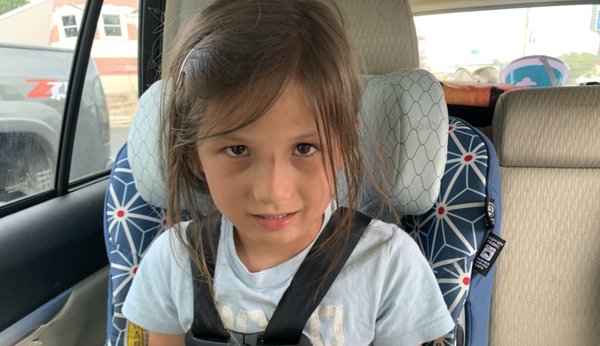[ 655 words ]
COVID-19 forces us to redesign our lives and businesses.
Unfortunately, too frequently, we respond with questions that are too narrow. Our answers to such queries produce destructive, unintended consequences.
Consider how we approach concerns about the virus and schools:
My six-year old son, Rayden, stamps his foot. The four cabin walls around Rayden shake. It feels like the structure shares Rayden’s frustration.
“I want to see my friends!” Rayden shouts, and bites his lower lip.
Many news articles debate whether it’s safe to open classrooms.
Should we prioritize open schools, which are key for children (one-in-four Americans)? Kids are at low- risk from the disease and need to learn.
OR, do we shut-down classrooms in fear that a child might infect the higher risk population (at least one-in-three Americans)?

Such zero-sum questions hide potential answers and our world’s complexity. We need an answer that will serve both populations, and that will serve tomorrow, as well as today.
To see the impact of complexity, consider how our current school dilemma results from a history of unintended consequences. Our Coronavirus risks result more from unfortunate decision-making than beyond-control surprises.
Beyond our control are the 15% of Americans at risk from COVDI-19 because they ‘happened’ to become age 65+.
Unfortunate decisions lie at the root of even larger portions of our at-risk, population. Consider the one-third of Americans scared about COVID because they’re diabetic or pre-diabetic, for instance. Or the almost one third (31%) of Americans over 65 at extremely high risk because they suffer four or more chronic health conditions. According to the Kaiser Family Foundation, such unhealthy conditions can be traced ‘60%’ back to “lifestyle choices” like food, sleep, exercise, and to pollution and related environmental factors. I.e., our high-risk health conditions are unintended consequences of prior decisions by individuals and society-at-large.
And consider the destructive social systems that feed these unhealthy choices.
By the 1970s, it was clear that the number of obese Americans was growing.
The food industry swung into action but did so asking questions that were too narrow. Businesses asked, “How can we reduce fat?”
The resulting “low-fat food” craze was destructive. To produce low-fat, tasty dishes, many producers added gobs of sugar and other unhealthy ingredients. Americans’ obesity grew further.
To avoid unintended consequences, we need to ask broader questions. For food, rather than, “How do we reduce fat” we need to ask, “How do we support healthy eating?” Designing lower-calorie foods is only one sub-question in such a broader analysis.
Similarly, the narrow question, “Should we open schools this fall?” risks unintended consequences: a poorly educated, a-social generation or over-filled hospitals. The broader, “How do we effectively raise our children, while calming at-risk adults?” can capture all consequences.
Leaders can deliver on incredible opportunities. Digital technology and its potential are exploding. We can teach, engage, keep safe, and deliver food in more ways than ever before. We can support health and wellness better than any generation in the past—Covid or no.
However, to do so, we need to complement our narrow questions with insights, tools, and strategies built on broad awareness.
In your own business, do you sufficiently take a step back to see the connections between decisions? Do you collaborate enough? Or, are you excessively focused on the immediate challenge?
With Dr. Steve Greenspan, I’m looking to integrate social, economic, and biological understanding of unhealthy eating, As economist Gary Yohe, who shared the Nobel Prize, said when he advised and endorsed the project, “Integrating our knowledge about a complex topic helps us to develop deeper insights,”
There’s every opportunity to similarly approach out questions about school.
Safeguard your future today, while positioning yourself to thrive for our children tomorrow.
Rod
Dr. Rod Wallace is an economist, consultant, and speaker who helps businesses make more money by solving society’s problems. A Fulbright Fellow, he has led multi-organization billion-dollar initiatives worldwide and partnered with a Silicon Valley pioneer to explore the impact of Artificial Intelligence on society.
Rod speaks about how to integrate social responsibility into business to maximize profit and purpose. He highlights digital technology’s impact on society and the strategies and tools with which business can solve our big, systemic problems.
Contact Rod at info@RodWallacePhD.com.
